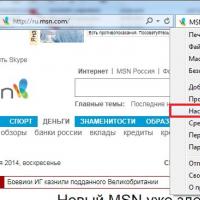Industry of information and knowledge. Industry Information and Knowledge Information Industry does not include
Economic foundations of the information society.
The information industry can be defined as a branch of the economy associated with production, processing, transmission, storage of all types of information, creating the necessary for this technical devices and technologies. It is the most dynamic sector of the global economy, generates products and services substantially changing the nature of doing business in traditional industries that are not directly related to the creation, processing and dissemination of information. The use of ITT in many areas of services and industry has become a completely necessary element of competitive struggle and strategic development.
The philosophical significance of this factor is that human activity is becoming increasingly based on knowledge codified in various types of technologies and computer programs. Intellectualization Economic life requires relevant changes in the social organization of society, in the field of education, in production methods. Knowledge recorded in technology computer systems, become an objective development factor. The basis of the existence of society is knowledge to use special funds - informational and telecommunication technologies. The production of knowledge turns into the most important function of society, providing survival and further progress, and modern ITT - to the means to implement this function.
Common concept information economy It characterizes the current tendency of the development of the global economy associated with the increase in the role of the information industry, knowledge in the economic life of society. Of course, the traditional industry, agriculture and services are still dominated in the volume of production, but the highest growth rates, profitability are observed in the industries industry.
The modern information industry combines a wide range of companies and firms engaged in production, transformation, transmission of information presented in the form of data, texts, graphics, video images, sound. Three industries can be distinguished: the production of information and telecommunications equipment, communication and maintenance of content (information).
Intensive structural changes are occurring in the information industry, due to rapid technological progress, which continues to increase efficiency and reduce the value of these technologies.
These structural changes convert the information market. New market participants appear, often from other regions of the information industry. For example, telecommunication companies enter the maintenance markets. The globalization of the electronic printed market, combined with deregulation, exacerbates international competition in regional and national content markets. It makes it difficult to protect the rights to intellectual products.
The development of the information industry is moving not only by new technological solutions, organizational mergers, but also a whole complex of economic factors. The economic field of activity of high-tech companies to which manufacturers of information products and services, telecommunications and computer equipment are the same as in other fields. This is the desire to dominate the market, expand its borders, offer new products, improve the quality of services and goods and, ultimately, get the maximum profit on the invested funds.
Introduction
Subject test work « Information Industry in the economic development of society. "
The active development of automated information systems and their use in public practice revealed deep problems associated with the technological cycle of processing and using information in planned-management, cognitive, production and other processes. Information began to talk about the social resource, which has its own purpose and its mechanisms of functioning in society. This resource and the standard is the subject of new functional science. Thus, informatics, being science on the laws of development, transmission and use information resource In public practice, theoretically fastened the role of computer and automated systems in these processes.
The purpose of the work is to familiarize yourself with the information industry: the purpose and meaning of activity; the place and role of the information industry in the public production; The modern structure of the information industry and the role of the state in the field of information industry.
Information Industry: Basic Concepts
The complication of industrial production, social, economic and political relations, changing the dynamics of processes in all areas of human activity has led, on the one hand, to an increase in knowledge needs, and on the other - to the creation of new tools and ways to meet these needs. The new industry is put forward - the production industry associated with production technical means, methods and technologies for the production of new knowledge and guiding the movement of humanity to the information society.
INFORMATION INDUSTRY - this is a large-scale production of information products and services of different types on the basis of the latest information and computer technologies (from newspapers, magazines and books to computer games and information filling). It includes two essentially different parts: the production of information technology (machinery and equipment) and production of information directly.
In addition to the concept of the information industry, the literature meets such concepts as the information sector of the economy, social production, the national economy; information sphere of the national economy; information infrastructure; information activities; information processing industry; information processing industry; information industries; informational species Activities.
The appearance of the concept of the information industry is associated with the dissemination of the concept of post-industrial society, according to which the main resources of developed countries today are involved in the information sector of the economy, information services and information become one of the most important products of social production, and the modern economy becomes an information economy. The process of fundamental transformations of the productive forces of society caused by expanding use in the social production of knowledge and accelerated update information technology, even in the late 70s of the XX century. Received the name "Information Revolution". In the publication of the information industry, the information industry is based, as a rule, from among people employed in it, directly or indirectly participating in the production and dissemination of information.
Including in the information industry of all types of activities related to information (primarily living), attributable to its results not only of information services actually, but also all the results of labor that appeared in connection with the use of information as a subject or means of labor and the use of funds Information technology, apparently, is illegally. It is also wrong to attribute to the information industry all that is used in information related to information enters its entry (for example, technical means, communication services), something that cannot exist as an independent object (for example, research results), etc. Otherwise, any kind of human activity carried out using not only its own, but also other who received an objective expression of knowledge, as well as any conscious activity should be attributed to information activities and to the information industry.
The results of the information industry are likely to include only those information services that have independent importance and / or trademark are not prepared and are not consumed in the course of carrying out activities to obtain other results in material and spiritual production. The information industry should include only those types of activities related to the preparation and provision of these services.
In practice, the information industry is understood as a complex of enterprises and organizations that prevail (in charge) the product of which information services are. This means that if the preparation of information services is not the main task of the activities of enterprises and organizations or services are prepared in an organizational non-separate division, that is, not consisting on an independent balance sheet and / or not leading independent accounting, then in this case, enterprises and organizations cannot be attributed to Industry information.
The main task of the information industry is the transformation of information (processing of information resources) in the interests of solving any consumer tasks and providing conditions for consumer access to the information they need. Consider the purpose of the information industry timely satisfaction of the needs of the national economy in new information on the basis of the use of new computing equipment, communications, new information technology, forms and methods of information production, apparently unlawful, because in this case the objectives of the information industry and its consumers are mixed . Information is a non-participatory and reproducible resource of the Company's livelihoods. At the same time, for the development of society, it is necessary to attract not only existing, but also new information resources, replace the old more promising. The more and faster than high-quality information is being introduced into all areas of life and economy, the higher the scientific and technical, economic, political and social potential of the country. Despite the increasing role in the public production, the information industry is not independent, it provides normal and effective work other areas of activity and units of social proceedings (both independent and non-independent), that is, is the infrastructure industry. In accordance with the services serviced and provided, within the framework of information infrastructure, you can allocate the infrastructure of scientific research and development; development, maintenance and management of production in the whole and by industry; political, social, state and economic management; recreation and entertainment; Education, etc.
Services for converting information and ensure access of consumers to it are just the main results of the information industry, or information services, which, along with a real form of consumer values, can also have an innumerable form - to perform a useful effect of labor, inseparable from the service of consumer service itself. They can be attributed to those of the material conditions of labor, without which it can occur only in an imperfect form. Information services in an innumerable form of production and consumption processes coincide in time, which determines a number of their specific features as consumer values. In most cases, these services are individualized, cannot accumulate, have a certain targeting and cannot exist outside individual contact with the consumer, not subject to storage, are oriented towards local markets. At the same time, the information services in an innumerable form accounts for an increasing proportion of labor results in the information industry. More information services in real form are brought together with material production products, although they retain a number of features. Technical and economic characteristics of these services used by them technologies close to industrial methods of production, high and ever-growing stocks of information production, based on the use of a large technical parking lot, the intensification processes of advanced reproduction proceedings in the information industry itself bring the information industry to the material production industry . The scale of the use of information services today is so great that, along with information resources, it is possible to be considered as a special resource, an important and increasingly significant element of the production potential of the enterprise, the industry, farms in general.
To prepare information services, as part of the information industry, this process of processing information is used as sorting (mainly its separation and association, including the semantic), which is the main technological process of the information industry. In turn, the successful implementation of this technological process It requires the execution of other processes both on preceding (for example, collecting and streamlining information for subsequent processing) and in subsequent stages of working with information (for example, providing information, its reproduction in a certain form and in the required number of copies, delivery to consumers).
It is important to note that the formation of the information industry as an independent and mass type of activity was associated with the transition to the use of computer and modern communications tools for processing information and providing consumers to access to it. Therefore, the main object of labor in mature, which has become an independent field of information industry, is information in a machine-readable form, and the main means of labor in it is a computer. Along with this, information in other forms in other forms, such as in printed, i.e., on various non-maternal media, in audio and species forms, etc., as well as information services prepared in divisions may be Industry information and other industries.
National and global information resources are considered as the subject of labor production. Labor in the information industry, along with computer and other equipment for information processing, printing and reprogrand equipment are performing, some office equipment, directly used to prepare and provide information services. Labor products can be attributed to the concepts of "Information Technology" and "Information Technology Tools". As noted above, the mass introduction of computational technology that stimulates the growth of human intellectual possibilities contributes to the intensification of information activities specializing in the preparation of information services.
The combination of enterprises, organizations and entire industries related to industry information is included in the concept of "information and communication infrastructure". Under this term, we understand the complex of organizational and technological means of searching, storing, distributing and using information products and services in all spheres of the life of society and the state. These funds include territorial distributed deposits of information resources, state and corporate computer networks, telecommunication networks and special purpose systems and common use, communication lines, networks and channels of data transfer, switching and information flow controls, organizational management and control structures.
The information and communication infrastructure of the state occupies a special place among the enlarged infrastructures of modern social production, since it is this infrastructure that plays a decisive role in organizational and technological support of the unity and integrity of the country's information space, its successful integration into the world information space, the main task of which is the inclusion of national information space Communication infrastructure in global global.
This is the manufacturing industry, collecting, distributing and transferring all types of information, the most dynamically developing industry in the world economy: its growth is 7-8% per year.
The role and place of the information industry is not limited to just a direct contribution to the gross domestic product:
- Progress and development of all sectors of the economy are directly related to the development of the information industry, since the growth of national income in developed countries is 60% provided by new technologies (innovative potential), by 10% - labor, by 15% - capital and 15% - natural resources ;
- Export potential, product competitiveness, the creation of new jobs directly depend on the development of information infrastructure;
- The main wealth of any society is a person. The standard of living, education, culture of any member of society depends on the possibility of obtaining and processing information. Traditional sources of knowledge (books, periodicals), cultural and entertainment information (printing, radio, television), communication means (telephone) merge into a single information environment, with which a person gets access to immense digital information resources, which is like texts, So audio, video, graphical and multimedia information. The same environment is used for the exchange and dissemination of information;
- Modern information infrastructure provides previously unknown opportunities for remote education, medical care, work at home, telemogazins, creating a qualitatively new way of life;
- Information infrastructure and information technologies will help to qualitatively change the functioning of state authorities and management of all levels by:
- - improve the efficiency of the state apparatus (automation of document management, the introduction of telematic services - email, facsimile, video conferencing, etc.);
- - providing all the information necessary for making management decisions;
- - ensuring the operational communication between management structures and the public (on the one hand, the activities of state bodies becomes more "transparent" to the public, on the other hand, it is possible to promptly account for public opinion and impact on it, including in particular layers and categories of the population ).
The scope of the information economy. It explores the structure of the knowledge market, information components and complexes; Economic processes related to the phenomenon of information resources acting as a substitute for economic resources. The information economy examines new possibilities of regulatory management using preformed information resources and information management.
The information economy provides processes of modeling and the choice of rational schemes for the exchange and mutual substitution of information and economic resources, the possibilities and behavior of the manufacturer of information resources and their usefulness for consumption are being studied, the interrelated processes of a rational combination of attendant, expert and mathematical modeling of problem situations are organized.
The technology of the market of information components and knowledge complexes of both objects of the information economy, the impact of information resources as a substitute for economic resources on animation and acceleration processes determine the possibilities of rational economic management based on the separation of regulatory and information technologies In management systems and their integration. The structural model of the information economy is presented in Fig. 1.1, structural models of information macroeconomics and microeconomics - in.
Fig. 1.1. Structural model of the information economy
Thus, it can be stated that the phenomenon of the information economy leads to the transformation of the information resource into the main source of value added, the appearance of opportunities on this basis to ensure the intensive nature of economic development based on low-cost technologies, including information technology management.
Information economy is a powerful system-forming factor in socio-economic development, a source of high-liquid stock and a guarantee of political stability in society.
In conclusion, it can be stated that the CIS countries in the field of information economics are far behind the forefront. In the CIS countries, a paradoxical economic situation has emerged, namely: in the excess of obsolete information flows, information hunger is felt newest flows. To overcome the information lag of the Government of a number of CIS countries through state regulation, attempts to eliminate such a gap.
Information Industry
Information Industry
Information industry - production of information products and services based on information technology. The information industry includes (1) the production of computing equipment and (2) the production of information.
In English:Information Industry.
Financial Dictionary Finams.
Watch what is the "Information Industry" in other dictionaries:
Production of information products and services based on information technologies. The information industry includes the production of computing equipment and the production of information of the business of the Terms. Academician. 2001 ... Business Terms Dictionary
information Industry - large-scale production of information products and services of various types on the basis of the latest ICTs (from newspapers, magazines and books to computer games and information filling (content) networks). It includes two essentially different parts: ... ... Technical translator directory
INFORMATION INFORMATION / INFORMATION INDUSTRY - large-scale production of information products and services of various types on the basis of the latest technology (from newspapers, magazines and books to computer games and information filling networks (content). It includes two substantially different parts: ... ... Explanatory dictionary of information society and new economy
Industry - (Industry) Industry is the most important industry of the economy of the beauty industry, tourism, development of the construction, hotel, the gaming industry Contents \u003e\u003e\u003e\u003e\u003e\u003e\u003e\u003e\u003e\u003e\u003e\u003e\u003e\u003e\u003e Industry (In ... Encyclopedia Investor
The industry of material and intellectual production, which ensures the operation of the network information space. In English: Internet Industry See also: Information Economics Internet Financial Dictionary FINAM ... Financial vocabulary
Infrastructure - (Infrastructure) Infrastructure This is a complex of interrelated serving structures or objects transport, social, road, market, innovative infrastructure, their development and items Contents \u003e\u003e\u003e\u003e\u003e\u003e\u003e\u003e ... Encyclopedia Investor
A country's economy - (National Economy) Country Economy This is a public relations to ensure the riches of the country and the well-being of its citizens the role of the national economy in the life of the state, the essence, function, industries and indicators of the country's economy, the structure of countries ... ... Encyclopedia Investor
The state of the information industry in the context of globalization of the global economy
The role of information and telecommunication technologies (ITT) in certain industries and services.
The situation in the ITT market.
1. The state of the information industry in the context of globalization of the global economy
The rapid development of technologies and the introduction of new technological solutions radically changes the information landscape of the country. In particular, there is a complex process of destruction of the bureaucratic, information and communication monopoly of the state. At the same time, together with the emergence of new players, including large transnational, undergoes the conquest of niche more mobile technological players. There is a segmentation of information space, both with technological and socio-economic and political and ideological points of view. This process is somewhat contracted with the general need for consolidating the Russian national state. At the same time, you can fully talk about the growing process of formation of distributed networks of information channels and funds in the Russian Federation, on the depressurization of the information space and its sprawling to the regions. The weakness of the central power only radicalizes this process.
Characteristics of modern information dynamics
When we talk about the information space, it is primarily about the three main structural system-forming components: about the status of information and communication channels and means - information and communication infrastructure; on the quality of filling - to the substantial provision of this space and information networks; and ensuring legitimate rights to use and consume information resources that appeal in this space.
A preliminary assessment of the information industry in the Russian Federation suggests the monopolization of the information sphere by a political system, and rather, political power. Practically sole manufacturer of public, public information sphere today are politicians and political power.
The information field is so deeply hierarchized that it is not difficult to extend the profile of its discrimination. The current information system is so built that the proportion and share of public information are prohibitively negligible compared to the entire volume of public life and the potential of the public information sphere.
At the same time, the system is arranged so that it provides unequal conditions for use and access to information. To make sure this is enough to look at the organization open, public Access to the libraries of the Russian Federation. The more significant knowledge stored in the library, the already access to this library and to the appropriate knowledge, irrelevant to the relationship of this knowledge to state secrets and national security.
Another example is unequal media access to state-political information. After all, it is no secret that some channels and newspapers are "centrally" in relation to other media, including from the same center. And the point here is not so much in the qualifications of journalists, as in the organization of public information flow and information campaigns by the original sources of information. Access to information and its value directly depends on the physical, material and political and legal (ideological) intimacy of the media to its source. With this situation, it is not surprising that the most influential television channels and newspapers are those related to the so-called oligarchs and government representatives, again, regardless of the information and intellectual competence of these subjects.
Interestingly, in this regard, to blame the broadcast chain and relaying public information through existing information channels. First, the information, in almost the form of leakage, is placed in a very narrow circle of publications endowed with certain powers. This information is then broadcast in the essential means of communication (television and radio broadcasting), only after that the information flows into "second-hand" publications and then on the chain is reproduced in electronic and regional media. Thus, information waves and informational campaigns are organized as targeted processing of public opinion. The information flow flows from more controlled and managed means of transportation and distribution, to less prone control. The priority of information, the so-called top-news, as a result, are defined in the country not the "natural information market selection" - the brains of the consumer themselves, and the preferences of information strategies of a elitar group. Thus, initially the right to information and the principle of freedom of choice, freedom of speech and freedom of conscience is violated.
On the other hand, we have a real limitation of the bandwidth of communication channels. The emergence of new communicators in the form of a new television channel, a new radio program or a new publication is a very rare phenomenon in the Russian Federation.
And the degree of development of information networks and channels only enhances the described position. Media networks (newspapers, radio, television programs) are exactly repeated this pyramid and institutionalizes initial unequal access to public information on a national scale. Discrimination refers to the dissemination of information from the center to the periphery, from the upper layers of the information and communication pyramid to the lower and in the opposite direction - to the access of the population of central administrative districts to regional information. On this field it is easy to organize control and management of the mood of the masses. The pyramid, built back in Soviet times, works fine. Unfortunately, even new electronic channels of the Internet, which are considered the most democratic in the modern world, fall into this trap.
In this sense, the entire discussion around the people's television and municipal TV channels in the context of the bureaucratization of the production of content and weak infrastructure support is nothing but an attempt to strengthen the dependence of the information space from the content deficit and the narrow of the bandwidth of these channels. Another side of such a policy is artificial information inflation in deflation of scientific, rational and meaningful knowledge. While in the world there is an increase in the information overload of consumers, in the Russian Federation, so far prevails artificially supported information hunger. Information in the media today is more show than real knowledge and content.
With this principle of organizing the information space, self-governing public initiatives, public organizations and public control are empty sounds. In the Russian Federation, such organizations do not own and do not determine the content of the information space, nor its technical equipment.
Although they could ask a public agenda (as the Council of the NB RF asks a tone in monetary policy) and ensure the development of communication infrastructure, including alternative, and alternative content (alternative to political power).
Subject of information policy
In fact, the subject of information policy is to ensure the conditions for the functioning and prosperity of the information and communication field and the information society. And the problem of the information and communication field is the effectiveness and effectiveness of socially useful knowledge. It directly depends on the ratio of wealth and the quality of the content of information resources (information array) to the throughput of public, public communication channels, the channels of transmission and distribution of knowledge and information.
The information policy of the state covers at least three areas of activity:
Creating and disseminating information. At the same time, the information field covers both the socio-political and social sphere and scientific and theoretical knowledge, scientific, academic and high-tech information.
Formation and ensuring the rights of use of infrastructure.
Legislative regulation of relations about information.
Today, however, the attitude about the information policy is more like a struggle for monopolizing the right to knowledge and information. To establish information control over society today resort to various waysreducing the effectiveness of the information system. This, in particular:
Maximum increase in the content (information / knowledge) when limiting the bandwidth of communication channels.
An increase in the level of information noise in relation to real knowledge. Society's erudition today is many times the level of introduction of knowledge accumulated in society.
Appreciation of the value of communication channels compared to the production of content
Reducing or limiting the ability and capabilities of information makers relative to communication channels
Reducing the content of information and knowledge
Today, the state is not able to control the information space using infrastructure management. The national-state information, the infrastructure system is hopeless and self-dedicated. Investment resources for tightening the national system to the level of global dominant systems are critical, and, accordingly, it does not allow the state information system to withstand Natisk on the part of global transnational information networks. At the same time, state power in this area is consistently eroded by smaller, new technologically flexible and dynamic information entities.
Such a state, as a result, prevents the formation of a long-term, sustainable national information strategy and policies, which is also preventing the supporting structure of a long-term, sustainable national information strategy and policies, and conducting any information idea through targeted formation of a mobilizing, holistic, unified information space.
As for the qualitative meaningful filling of the information space, today there is an increasing alienation between public information, rational, scientific, academic knowledge, and government political and legal information. From a practical point of view, the halfness of the information space, for example, is clearly visible in the political saturation of the information space and legal illiteracy and the helplessness of the population. In fact, the information is still nothing until it is filled with real practical knowledge. The removal of academic, scientific knowledge from the main massif of the information dynamics of society and to summarize this knowledge under the authority of the limited range of elite groups, the practice of political usurpation of knowledge is all means of cutting power from the controlled mass.
Information and power
The real rate in the whole discussion about the information space is a question of the legal, efficient knowledge, as well as the issue of the right to use and producing that knowledge that can change the material world, therefore, to change and power.
Studies show a direct correlation between a person's awareness and its ability to correlate political decisions and processes with their personal, personal interests. Information allows a person to make more structured, rational, conscious decisions in relation to politics, therefore, to position itself towards power. Such can not be said about the uninformed person.
Thus, the volume and quality of the information that the population receives directly affects its ability to influence power and participate in political life. The most vivid confirmation of this argument was the model of social well-being society, which developed in Scandinavian countries. In these countries, the policy of information openness is combined with the strong influence of the wide segments of the population into a democratic political structure.
This pattern is predetermined by the degree of interest of political power to the completeness of awareness of the population and the electorate. Hence the following: The more informed by the population - the greater power it possesses, the less opportunity to rule the political establishment. All power in any democracy comes down to a good, conscientious execution of the will of voters and qualitative state management. The narrowing of the information field and the information selection of the population is almost equivalent to the use of the argument "with an emphasis on the ignorance of the opponent."
The role of the media, in this regard, is not to become the fourth government, but to facilitate the establishment of a real democratic system, through the saturation of the information space, full and truthful informing of the population. The media is a tool, instrument, and not the power itself. Only depending on the quality and volume of information provided by them, the media becomes either a tool for the power of a narrow group of people, a tool to manipulate people consciousness to strengthen political power, or a tool for strengthening direct democracy, a conductor of the collective will of society.
The construction of the media in the rank of the fourth government is, in fact, is an element of the policy of deterring the political legal personality of the population and the preservation of institutionalized and regulatory authorized power. In this case, the media act as a buffer between the population and the state, bureaucratic power.
In fact, the rate on the media today is not so high. In particular, this explains the weak heat of struggle, discussions around this sphere. In the same way, we can say about the relative ease with which the leading media go out of hand to hand. Such secondary interest is explained, on the one hand, weak influence The media to the real political and economic process, and on the other-stroke financial and economic impact from the ownership of these means. At the same time, the fact that the media today is an excess link of political and economic communication, which is increasingly coming down to the public with the public negotiations and agreements between political and business leaders.
Thus, the media today are minor means in both the political and ideological struggle and in business investment games. It is noteworthy that the media problems were more relevant at the previous political mode than now. If then the media was indeed one of the effective elements of political life and struggle, today today is noticeable to keep these funds from real policies, and bring their existence to one of the industries of the entertainment industry. In this regard, the social and political role and the status of the media today are viewed significantly less.
Extensive proof of the weakening of politician's interest in the media today is practical indifference to the content and programs of television channels. Completely forgotten discussions and fundamental performances about Zemstvo, fragile, local national characteristics. Interacting the establishment of the struggle for power and its conservation leads to a targeted restriction of the information awareness of the population, note of the ideological, the intangible side of the information space to a minimum. In the future, the containment vacuum is compensated by increasing the share of material assets in the information system. Such an attitude, in particular, leads to the preventionification of the content of informational messages, and this provision is justified by the need to meet the queries of the mass audience to ensure profitability.
In this regard, a certain parallel can be held with the evolution of European information policies. The initial approach to the media as a focus of public debates and national culture was replaced by attitudes towards them as a critical component of the information economy and, therefore, the information society. The ideological function of the media at the same time replaced the technological economic.
Informational Space of Individual Freedom
Thus, there is an explicit contradiction between the interests of the authorities and the public information space. Power seeks self-preservation by establishing control over the information sphere as a whole. This is achieved by capturing the carriers and channels of broadcasting, accumulating and storing knowledge, communications, as well as the space of genesis and the functioning of information. This works the entire licensing system in the information sphere. On the other hand, all sorts of mechanisms for monitoring actuators of real knowledge are established, on information workers.
Today, the intellectual worker does not use the fully all ownership rights to its information creation. In particular, this is determined by the weak penetration of the ideology and principles of protection of intellectual property in the Russian Federation. It also predetermines that the information sphere, the media and did not become the "fourth government".
It is about the fact that the fruits of their work only partially use people of the information workshop - at best, only in the monetary part of rights. Maximum restriction of the possibilities of people of intellectual work - employees of the information sphere - with the help of coarse materialism. The socio-organizational component of the created values \u200b\u200barising from them political opportunities and the power of information creativity are assigned by other solvent and power groups of society, namely, representatives of the political and business elite. What can be called a public application, the socio-political application of creativity of the intellectual information officer, is alienated from it and is assigned by other - political and financial power. It remains only a meager, the residual part of the product produced by him, for which he, as a rule, has to pay trials from his own employers.
Thus, the cynicism of the position of an employee of the information work is expressed, at least in two moments - cheap bribery, up to slave, custom and apologetic labor, on the one hand; and the forensic liability for informational handlers, which he deigned to leave the power of the property. The same people who do not leave anything to him except informational waste, and pursue him, arranging all sorts of judicial and administrative proceedings.
The work of the information officer, in the Russian Federation, in fact, did not receive the status of a creative, intellectual profession. Paradoxically, the information worker is practically equal to the blue collar. This is the black-worker "Higher order intelligence".
With this position of things, it is hardly necessary to expect the rapid development of the information industry. On the contrary, the most developed type of information creativity becomes intellectual mockery over users of information - to invest in the mouth of the power elite, ambiguous statements and turn it into the jester, carrier of the ambiguous, unrelated meaning. Illogical? Try to evaluate the theatrical behavior of the current government in the public information sphere, and everything will be in place. And the media becomes just a mirror of this situation. In the severity of the media today you can deeply doubt; But there is an empty pomp, or vice versa, what is called "yellow boulevard".
State of the modern information society
Today, two principles of formation of information policies were marked, two worldviews in the information sphere:
On the one hand, the worldview of the state-political, national-state feasibility. In these frameworks, such political and ideological extremes were born as fascism, beshevism (or his type, National-Bashevuli), radical nationalism (national-patriotism), and others.
On the other hand, the worldview of the information society, which allows to discuss and raise the issue of freedom of speech, on the right to information, and others. The same frameworks also contain a discussion on the right to intellectual relationship.
Today, it becomes increasingly an understanding that the information society is not a self-sufficient concept of the formation of society. In fact, we are witnessing the formation of a system of a holistic industrial-technological information society.
The actions of the government and the state in developing their information policies should be determined by the global direction of the formation of the information economy, the introduction of the principles, mechanisms, culture, systems and structural elements of the information society in the Russian Federation.
When we talk about the information society and the formation of the information space, it can be considered as information systemThe structural elements of which are:
Information and legal space;
Private, private information space, private sector space;
Public information space, public sector space;
As well as a state-political information space.
The trouble of modern society, as well as all milk-type societies lies in the fact that there are constantly some of these spaces overlap others. The distortion virus arising from this is distributed throughout the public body.
For example, a distortion common in the CIS: All information space fills personal information - information about the ruler, or information about one, even a significant, public life sector (for example, is the state of Gazprom, or the State of the Parliamentary Tribune ...).
In modern liberal society, it is believed that the legal space should act as an integral platform for all subspaces of society. Here the market is handing the law.
In general, the volume, quality, flow of information, the content content of the information space depends on the institutional structure of the Company itself. In applied to the Russian Federation, this predetermines the paradoxical situation today, when after 20 years of independence of the new era, a fragmentary content and incompleteness of the formation of the Company's information system are still observed.
 Causes of why Flash Player does not work, and troubleshooting
Causes of why Flash Player does not work, and troubleshooting The laptop itself turns off, what to do?
The laptop itself turns off, what to do? HP Pavilion DV6: Characteristics and Reviews
HP Pavilion DV6: Characteristics and Reviews Format representation of a floating point numbers How negative numbers are stored in the computer's memory
Format representation of a floating point numbers How negative numbers are stored in the computer's memory Computer fries and does not turn on what to do?
Computer fries and does not turn on what to do? Why does not work mouse on a laptop or mouse?
Why does not work mouse on a laptop or mouse? How to increase or decrease the scale of the page (font) in classmates?
How to increase or decrease the scale of the page (font) in classmates?